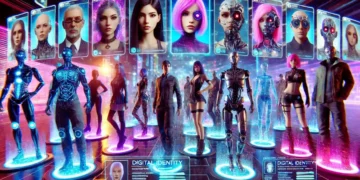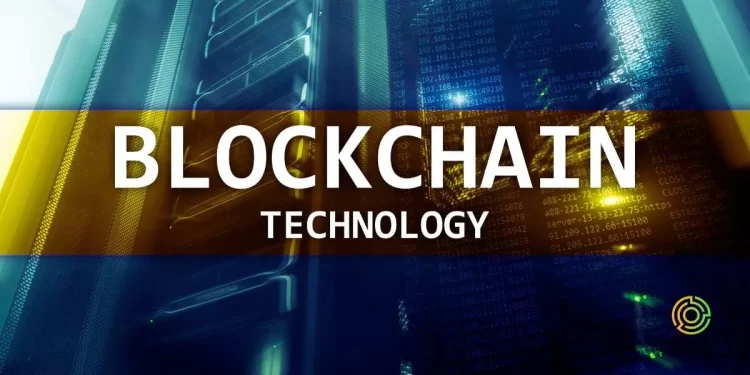Blockchain technology has been making waves in the tech industry for a while now, and for a good reason. It is a distributed ledger technology that offers transparency, security, and efficiency to businesses and individuals.
While it is commonly associated with cryptocurrency, blockchain technology has the potential to revolutionize many industries beyond finance. In this article, we will explore 10 ways blockchain technology can change the world around you.
Blockchain Technology
Blockchain technology is a decentralized, distributed ledger that records transactions on multiple computers in a secure and transparent way. It was initially designed as the underlying technology for Bitcoin, but its potential applications extend far beyond the world of cryptocurrency.
Technology has been gaining popularity in recent years, and many companies are exploring its potential to transform industries.
Blockchain and Decentralized Voting Systems
Voting is a crucial aspect of any democratic society, and blockchain technology can make the process more secure and transparent. With blockchain-based voting systems, there is no need for a central authority to manage the election process.
Each vote is recorded on the blockchain, and once the voting period is over, the results are transparently displayed on the blockchain.
In addition to providing transparency and security, blockchain-based voting systems can also help to eliminate voter fraud. By using blockchain technology, it is virtually impossible to tamper with or alter voting records, ensuring a fair and accurate election.
Blockchain and Supply Chain Management
The supply chain industry is rife with inefficiencies, and blockchain technology can help to streamline the process. By using blockchain technology, companies can track products from their origin to their destination, providing transparency and accountability throughout the supply chain.
Blockchain-based supply chain management systems can also help to prevent counterfeit products from entering the market. By tracking a product’s journey from its origin to its destination, companies can verify its authenticity and ensure that it has not been tampered with.
Blockchain and Decentralized Social Networks
Social networks have become an integral part of our lives, but they are often centralized and controlled by a single entity. Blockchain technology can change this by creating decentralized social networks that are controlled by their users.
Decentralized social networks built on blockchain technology offer several advantages. Firstly, they give users more control over their data, as it is stored on the blockchain rather than a centralized server.
Secondly, they offer increased privacy and security, as users are not reliant on a single entity to protect their data.
Blockchain and Healthcare
Blockchain technology can revolutionize the healthcare industry by providing secure and efficient storage of patient data. By using blockchain technology, patients can have control over their medical data, while healthcare providers can ensure the privacy and security of patient information.
Blockchain-based healthcare systems can also help to prevent medical fraud by ensuring the authenticity of medical records. Patients can be confident that their medical data is accurate and up-to-date, while healthcare providers can ensure that they are providing the best possible care based on accurate information.
Blockchain and Real Estate
The real estate industry is another industry that can benefit from blockchain technology. By using blockchain-based property registries, the process of buying and selling property can be streamlined and made more secure.
Blockchain-based property registries can also help to prevent fraud by providing a transparent and immutable record of property ownership. This can help to reduce disputes and increase trust in the real estate industry.
Blockchain and Banking
Blockchain technology has the potential to revolutionize the banking industry by providing secure and efficient ways to transfer funds. With blockchain-based transactions, there is no need for intermediaries such as banks, which can reduce transaction costs and increase efficiency.
Blockchain-based banking systems can also help to provide financial services to the unbanked and underbanked populations. With blockchain technology, individuals can have access to financial services without the need for a traditional bank account.
Blockchain and Intellectual Property
Intellectual property is a valuable asset in many industries, but it can be difficult to protect. Blockchain technology can help to protect intellectual property by providing a secure and immutable record of ownership.
By using blockchain technology, companies can track the ownership of their intellectual property, ensuring that it is not stolen or infringed upon.
This can help protect intellectual property’s value and provide legal recourse in the event of an infringement.
Blockchain and Energy
The energy industry is another industry that can benefit from blockchain technology. By using blockchain-based systems, the energy market can be made more efficient and transparent.
Blockchain-based energy systems can help to track the production, distribution, and consumption of energy, providing transparency and accountability throughout the process.
This can help to reduce waste and increase efficiency in the energy industry.
Blockchain and Education
Blockchain technology can also be used to create decentralized education systems. By using blockchain technology, students can have control over their educational records, while educational institutions can ensure the authenticity of academic achievements.
Decentralized education systems can also help to provide education to individuals who may not have access to traditional educational institutions.
By using blockchain technology, individuals can have access to educational resources from anywhere in the world.
Blockchain and Identity Management
Identity theft and fraud are major issues in today’s world. Blockchain technology can help to prevent identity theft by providing a secure and immutable record of identity.
By using blockchain technology, individuals can control their own identity, ensuring that their personal information is secure and private.
This can help to reduce the risk of identity theft and fraud, providing greater security and peace of mind.
Conclusion
Blockchain technology has the potential to revolutionize many industries beyond finance. From providing secure and transparent voting systems to creating decentralized social networks, blockchain technology can change the world around us in many ways.
By providing transparency, security, and efficiency, blockchain technology offers a range of benefits that can transform the way we live our lives.
As blockchain technology continues to evolve, we can expect to see even more exciting applications in the future.
Follow us on our social networks and keep up with everything in the Metaverse!
Twitter Linkedin Facebook Telegram Instagram Google News












































